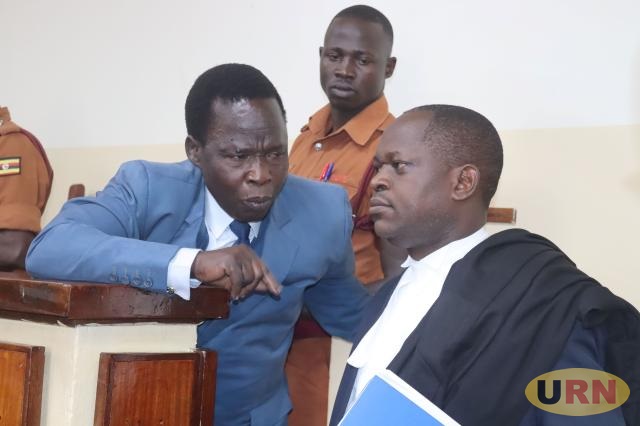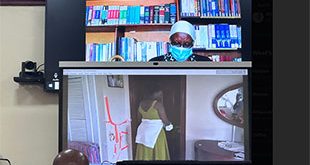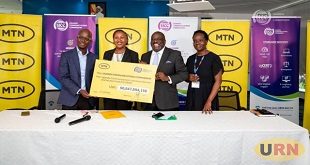
Gulu, Uganda | THE INDEPENDENT | Former Lord’s Resistance Army (LRA) rebel commander Thomas Kwoyelo alias Latoni has asked for forgiveness from the community in the Acholi sub-region who have been affected by his atrocities committed while in captivity.
The former child soldier turned rebel commander told the court on Monday that while he is remorseful for the crimes he has been convicted of and that of the LRA, they were all committed under duress and never intentionally.
While appearing before Judges at the International Crimes Division of the High Court sitting in Gulu city, Kwoyelo maintained his innocence and instead blamed the elusive LRA leader Joseph Kony for his commands.
Kwoyelo was found guilty by the court in August of committing 44 counts of murder, pillaging, outrages to personal dignity, enslavement, rape, cruel treatment, and torture. He was indicted by the same court of 78 counts of war crimes and crimes against humanity which he denied all.
During his submission on Monday, Kwoyelo highlighted that whereas he is seeking pardon from the victims, religious leaders and President Yoweri Museveni, he too is a victim of the LRA war. He noted that he was abducted at the tender age of 12 by LRA rebels and trained through the years to commit the crimes he had been convicted of.
Kwoyelo asked the judges to consider handing him a jail sentence which would allow him to do other meaningful work out of jail and also help him to change his life.
Kwoyelo said because he is already 49 years old and soon hitting 50 years of age, a lighter sentence would allow him to reunite with his family and children and also allow him to engage in reconciliation with victims through Mato Oput.
He reasoned that a longer custodial sentence or life imprisonment would deter any efforts towards Mato Oput, an Acholi traditional justice mechanism of forgiveness and reconciliation between a perpetrator and victim.
“I request the court to give me the chance to return home, and we reunite to perform Mato Oput, our traditional Acholi justice. If we reconcile, we shall be one but if I am in jail, how shall we perform Mato Oput,”? he asked.
The prosecution however told the court yesterday that Kwoyelo’s crimes were not isolated incidences committed but part of a wide and systematic campaign of terror and violence against innocent civilians.
They asked the court that owing to the gravity of the crimes, the convict be handed a life imprisonment sentence for the eight counts of murder and 30-50 years’ jail sentences for the crimes of rape, torture, cruel treatment, imprisonment, and other inhumane acts.
The prosecution also asked the court to sentence the convict to 15 years for pillaging and destruction of civilian property and prayed that the sentences should run consecutively, ensuring that Kwoyelo spends the remainder of his life in prison.
But Caleb Alaka objected to the prosecution’s prayers in his mitigating submission arguing that that the convict was a victim who needed protection and that a long custodial sentence doesn’t serve the interest of justice.
Alaka reasoned that Kwoyelo was a victim of the LRA who endured hard times as a child during captivity from the time of his abduction but is remorseful and seeks reconciliation with the people of Uganda.
“We pray that your lordships tamper justice with mercy and see in the convict the fate of the generation of Acholi children robbed of their innocence and childhood upon being abducted by the LRA, and turned into killing machines,”
Alaka asked the court to set free Kwoyelo and consider the time he spent in captivity and prison as sufficient to have served his sentence which would allow him to spearhead genuine reconciliation.
Kwoyelo whose case has been before the four-member panel of judges comprising Micheal Elubu, Duncan Gaswaga, Stephen Mubiru and alternate judge Andrew Bashsija is set to be sentenced on October 25.
He has already spent 15 years in custody at the Luzira Maximum Prison in Kampala since his capture by the Ugandan army in the jungles of Garamba National Park in the Democratic Republic of Congo (DRC) in March 2009.
***
URN
 The Independent Uganda: You get the Truth we Pay the Price
The Independent Uganda: You get the Truth we Pay the Price


 Anthony Natif notes from Court: Uganda Vs Molly Katanga and Others 13/May/2025
Anthony Natif notes from Court: Uganda Vs Molly Katanga and Others 13/May/2025
